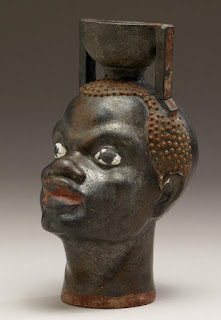Greece Distressed over Cases of Return of Property to Macedonians
Greek authorities got scared of the progress made in the cases of return of properties to Macedonians, which were taken away from them after the 1949 Civil War, says Trendafilka Sandeva for daily Dnevnik, the lawyer hired to handle the real estate cases of the exiled Macedonians from Greece.
"The Greek authorities dislike the seriousness of my work approach and were filled with disbelief that we would get this far," the lawyer adds, who was denied access to Greece.
The explanation given by Greek customs services was the same that was provided to all the journalists and other Macedonians who are denied access into Greece - that the country's national register says that "they are a danger for the public order and safety, the public health and the international relations".
"I was never part of the Macedonian associations in Greece, nor have I participated in their events in the region of Florina and its surroundings. But my engagement represents a much greater danger for the Greek authorities, especially after they realized that we are not giving up our intentions to return the properties to the Macedonians," Sandeva says.
The road to Greek courts
Sandeva underlines that last year, there has been progress in the case processing, i.e. certain number of cases have already reached the Greek courts, a fact the local authorities dislike. According to Sandeva, it is still early to come out with prognosis on how long the court procedures will take, but she is certain that it is highly likely they will reach a positive result.
"Although Greece is an EU member, the country's judicial system sees long-lasting court procedures, much longer than ours, for example. Two years could pass from the filing of the cases to the first hearing. But realistically speaking, such processes would take a long time in any country and would be exhausting, because the cases involve a period of several decades and various different documents are also necessary," Sandeva explains.
She adds that it is impermissible that Macedonians cannot get their properties back, despite the complexity of the procedures, as the political background behind them is determined to go all the way to the end.
"The support from the progressive Greek public means a lot to me, as for instance the Greek MP who has presented my problem with the properties' return before the parliament in Athens. It gives me additional strength, the same as the cooperation with the lawyers from Thessaloniki who work on these cases," Sandeva says.
Ten years ago things would have been different
The main reason for the long court procedures, sometimes lasting up to ten years, is the lack of concrete verdicts based on which the ownership, i.e. the confiscation of the properties would be proved.
"These cases are one of a kind in the world. In all other countries, the return of property is done relatively faster because there are evidences, i.e. criminal convictions that for instance a genocide was conducted and violent exile had taken place along with the confiscation of property, based on which the ownership would be identified and proven and the properties returned. In Greece there is not one single verdict on the genocide and that's where the main problem lies. But it won't last forever," Sandeva says optimistically.
Another negative reason is that some ten years ago, the Greek state, the lawyer says, was pressuring the refugees not to claim their properties back through the so-called "their people". Their task was to persuade the refugees not to initiate procedures with the argument that their chances were little and that they could never handle the Greek authorities.
In contrast to Sandeva's optimism, the exiled Macedonians are losing faith that they will ever return to the place of their birth. The reason for that is the 1982 racist law, still in force, which allows the return of the property only to the "Greeks by birth" who have left the country during the Civil War. Its abolition would mean return to their homes.
Around ten people managed to get their citizenship back, return of property follows
The information that part of the cases is already before the Greek courts does not mean the job is done, but that months of waiting have passed, as well as the constant refusal to issue certificates which are otherwise the conditions for obtaining a citizenship, passport and in the end, return the right to ownership of the revoked property. The good news is that around ten people managed to get their citizenships back.
"In the cases where the citizenship was not revoked, we managed to prove that in a short while and get it back. This is one of the lost rights. In the cases where the citizenship was revoked, the Greek courts now are defying the revoking decision and a solid part of these cases are waiting for verdicts. In other words, the revoking itself is defied, and the people are waiting for a new decision to restore the citizenship. The next step in terms of the return of the lost right is the right to ownership of property," Sandeva underscores.





